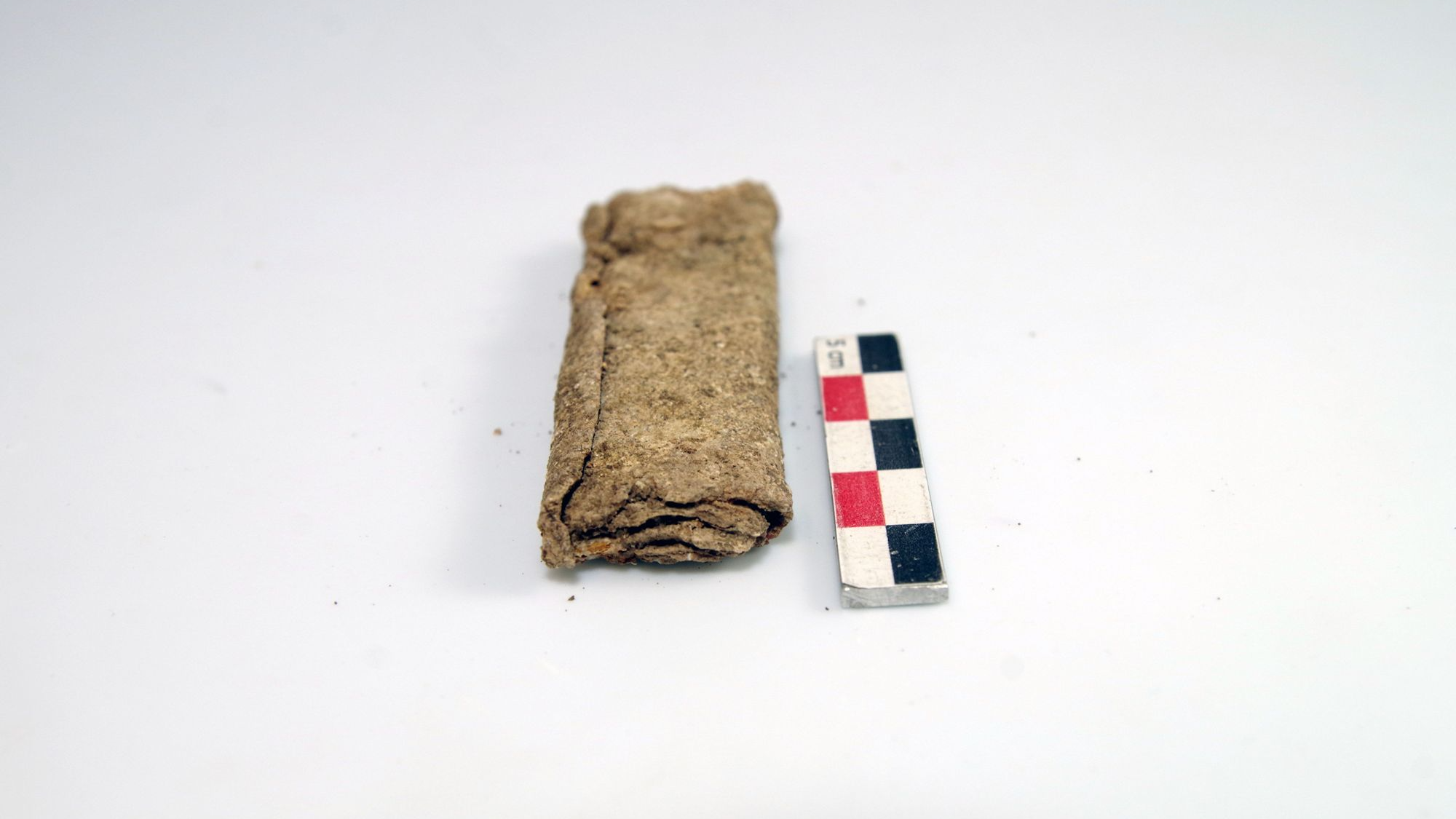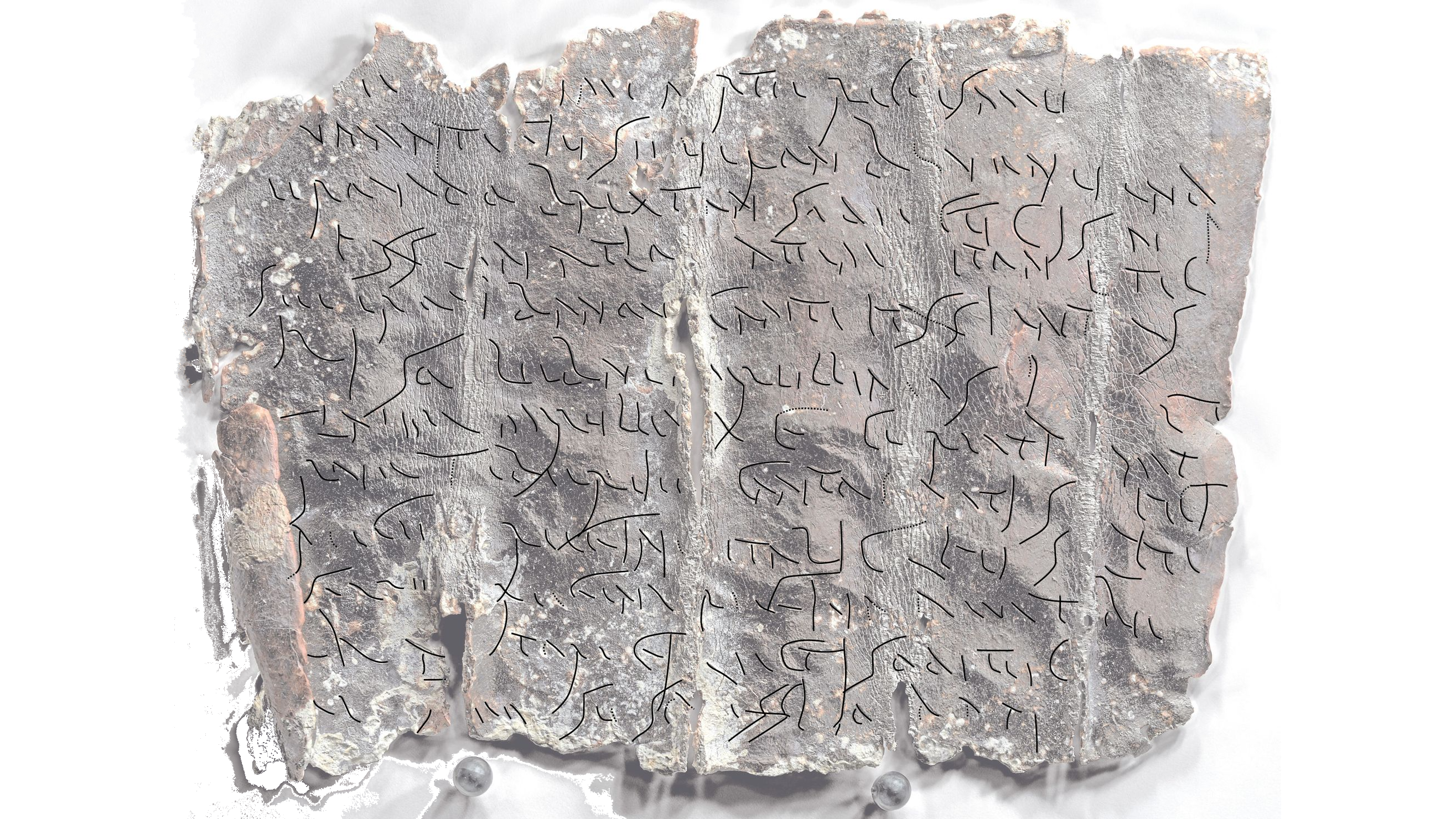Archaeologists in France have discovered dozens of Roman-era graves of men who were buried with “curse tablets,” at least one of which was written in an extinct language.
Excavations underneath an 18th-century hospital in the town of Orléans, about 75 miles (120 kilometers) southwest of Paris, have revealed more than 60 burials arranged in a single row along a wall. The cemetery, which dates from the end of the first century to the beginning of the third century, was atypical for this time because the burials were dug in a row, there were no women or children, there were traces of painted wooden coffins, and there were no cremations. This could mean that the dead were from a particular group, such as members of the same profession, according to the Orléans Archaeology Service, which excavated the site.
Even more unusual was the discovery of 21 curse tablets, which are small, rolled-up lead plates with inscriptions on them.
Also known by the Latin term “defixiones,” curse tablets have been found throughout the ancient Mediterranean world. These thin sheets of lead were used to talk to the gods. Someone would write down a curse or wish, pierce the tablet with a nail, and place it in the ground via a grave or well.
So far, experts have been able to study one of the tablets in detail, and they discovered that it contained an inscription in Gaulish, an extinct Celtic language.
Related: 1,800-year-old silver amulet could rewrite history of Christianity in the early Roman Empire

The man in grave F2199 was buried with a curse tablet between his legs, next to a crushed vase and several coins. After the tablet was recovered from the grave, an expert in restoration techniques chemically treated the thin lead plate to protect it from corrosion. Then, photographs were taken using reflectance transformation imaging, which produced a clear image of the unrolled tablet. Additional experts then set to work deciphering the Latin cursive inscription and translating the Gaulish words.
Pierre-Yves Lambert, a Celtic linguistics expert with the French National Center for Scientific Research, has proposed that the F2199 curse tablet is dedicated to “Mars Rigisamu,” which is Gaulish for “Mars the Royal,” or the Roman god of war. The inscription names several people — in both Latin and Gaulish — to be targeted by the curse for their unjust actions.

While Gaulish continued to be used for several centuries after the Roman conquest of the area, it was seldom written down — so the curse tablets are already yielding important new examples of this vanished language.
A second curse tablet has been subjected to X-ray tomography in an attempt to view the inside without unrolling it. The folded interior has been scanned, but the tablet has not been virtually unrolled yet.
Archaeological excavation at the site will be wrapped up at the end of this month, and researchers will undertake further laboratory analysis of all material uncovered during the dig.







Leave a Comment